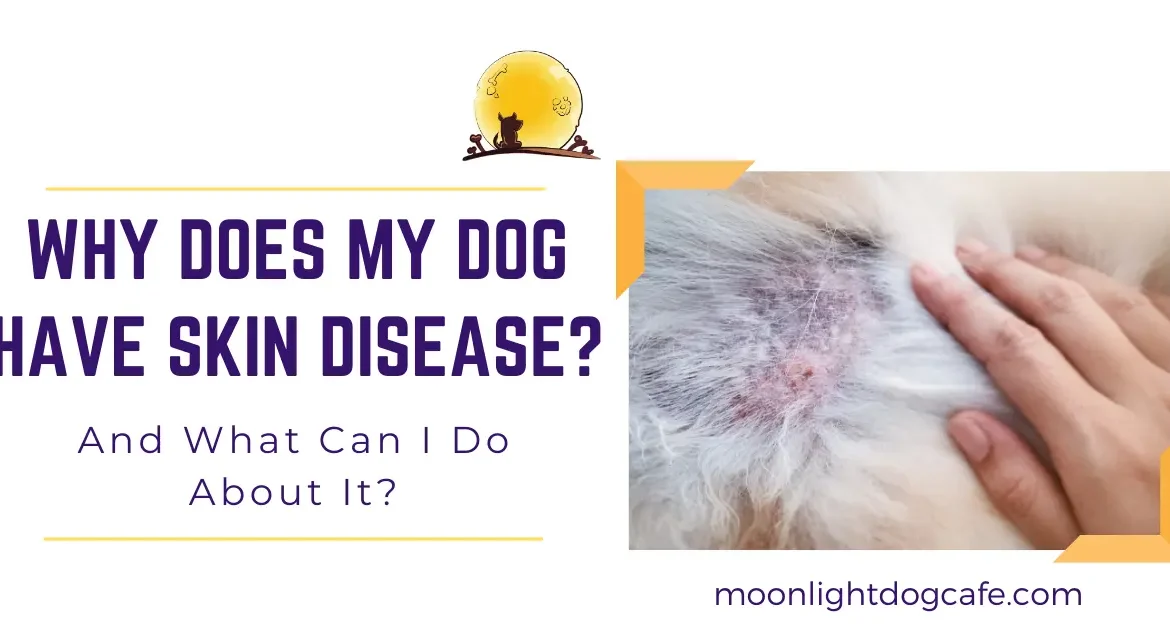
A Vet’s Perspective: Why does my Dog have skin disease?
Note from Moonlight Natural Pet Store
Dr. Rehanni sent me this draft for “Why does my Dog have skin disease and what can I do about it? “as part of a 3-piece series we had discussed. Unfortunately, she passed away suddenly and the draft has remained with me unfinished.
We have struggled on whether to post it unfinished but believe she wanted dog owners to know that there were other approaches to helping itchy/ “allergic” dogs and cats. The draft is posted as she sent it.
She believed that in this age where consumers want a “quick fix” and are likely to post negative reviews, vets are forced to produce quick solutions. For pet owners struggling with itchy dogs or dogs with food sensitivities, read this post. Based on more holistic approaches, we’ve seen vets recommend elimination diets that focus on single ingredient novelty proteins combined with animal detoxes and immune bolstering supplementation such as fish/krill oil, probiotics and turmeric for its anti-inflammatory benefits.
Seek a vet who may be interested in having this conversation with you. Temper your expectations about how long it may take for your pet’s body to heal and not be itchy. Support your pet through this very uncomfortable time. This post was envisioned to be Part 1 of the series. Dr Rehanni is sorely missed! ]

Why does my Dog have skin disease and what can I do about it? by Dr. Rehanni Khaseipoul (RIP)
At some point, most companion animals are affected by skin disease, whether it be an ear infection, skin infection or a rash. And understandably, their guardians want to find a quick fix to stop the discomfort their animal is experiencing.
“Doctor, can’t you give me a pill or an injection, or something to stop the itching/scratching/biting? He does it all the time and it’s driving me crazy. I just can’t watch him keep scratching. He’s making himself bleed and it’s constant, he just doesn’t stop.”
The problem with this desire to ‘stop the itching quickly’ is that the body just doesn’t work like that. Diseases take time to show up, and they take time to heal as well.

The body is an intricate system, of checks and balances, this helps to maintain a level of equilibrium. When that delicate balance is thrown off, giving an injection doesn’t help to re-balance the system. What the injection does is stop the itching by covering up the imbalance. So for a while the animal appears healed, no more itching, until the underlying problem rears its ugly head again. And again. And again. At that point, the previously popular ‘quick fix’ injection or pill no longer works, and then a stronger drug is used and the cycle continues again. Stronger drugs mean side effects, which affect the animals health and well being.
So what really is going on?
Why are our animal companions getting itchy or developing allergies, rashes, skin disease, ear infections?

There are a multitude of reasons that these diseases are coming with more common occurrence.
Poor diet, contamination of our environment, imbalance of the immune system through use of steroids, anti-inflammatories, vaccination and immune suppressing drugs.
Unfortunately, skin disease is one of the most complex things to treat.
Let’s start by looking at the commonly used drugs for this condition and the pros and cons of these drugs.
Steroids like prednisone, prednisolone, dexamethasone, cortisone, depo-medrol
Pros: decrease inflammation, pain, itching. These drugs tend to be the mainstay of therapy for skin disease because they remove the obvious symptoms of skin problems.
Cons: They do come with a long list of side effects. Some of these include:
- Gastritis– inflammation or ulceration of the stomach/intestinal lining resulting in vomiting and diarrhea, ulceration of the gastro-intestinal tract
- Catabolism of muscle tissue – as steroids are ‘catabolic’ by nature (meaning they break down muscle tissue), continued use can lead to loss/damage to muscle tissue. As the heart is muscle, one of the biggest muscles in the body, this breakdown of muscle can include heart failure or permanent damage to the heart.
- Impairment of the immune system– as steroids suppress or decrease the immune response of the body, other diseases can take hold in the system such as bacterial, fungal, yeast or viral infections.
- Cushings Disease, or hyperadrenocorticism, is a condition that can created by prolonged use of steroids, and Addison’s disease, or hypoadrenocorticism, is a disease that can result from the body no longer being able to produce its own source of steroids due to dependency on external steroid supplementation.
- Diabetes mellitus – long term use of steroids can cause hyperglycemia (increased sugar in the blood stream) as well as diabetes. The reason this happens with steroid use is not known.
- In humans, although it is expected that the blood glucose levels of non-diabetic patients should normalize after discontinuing glucocorticoid use, this does not always happen, and such patients require close monitoring due to the risk of developing diabetes mellitus in the future.
- Osteoporeosis/bone fractures – steroid use affects the metabolism of Calcium, Vitamin D and bone remodelling. This can cause bone loss, fractures and lack of bone density.
 Atopica
Atopica
Atopica is a drug which decreases itching by suppressing the body’s immune response. The active ingredient in Atopica – cyclosporine- has been around for many years. As many dogs are itchy due to allergies or sensitivity to food or environmental factors, Cyclosporine stops this itching by suppressing the immune system. Again the actual cause, what the pet is allergic to, is not dealt with but the animal’s entire immune system is suppressed to stop the symptom of itching. What does this do to the body? Well, as the immune system is what keeps infection and cancer at bay, animals on this medication for prolonged periods of time are more susceptible to infections as well as cancer.
Side effects of this medication
According to the manufacture’s drug information, side effects of this medication include but are not limited to :
- Gastrointestinal: Vomiting (Emesis), diarrhea, gingival hyperplasia, hemorrhagic diarrhea, abdominal pain, hematemesis, digestive tract hemorrhage, hypersalivation, retching, flatulence, tenesmus, intestinal stasis, digestive tract hypermotility, melena, pancreatitis, involuntary defecation
- General: Lethargy, anorexia, weight loss, polydipsia, hyperthermia, pale mucous membrane, general pain, collapse, dehydration, edema
- Dermatologic: Pruritus, dermatitis and eczema, alopecia, erythema, papilloma, bacterial skin infection, skin lesion, skin and/or appendage neoplasm, pigmentation disorder, hair change, hyperkeratosis, histiocytoma, fungal skin infection, dermal cyst(s), desquamation
- Behavioral: Hyperactivity, behavioral changes, anxiety, vocalization, aggression, inappropriate urination, disorientation
- Neurologic: Muscle tremor, convulsion, ataxia, paresis
- Respiratory: Tachypnea, dyspnea, cough
- Urologic: Polyuria, urine abnormalities (hematuria, urinary tract infection, proteinuria, glucosuria, decreased urine concentration) urinary incontinence, cystitis, renal failure, renal insuciency
- Immune: Urticaria, anaphylaxis, allergic edema Blood and lymphatic: Lymphadenopathy, anemia, hypoalbuminemia, leukopenia
- Hepatic: Elevated Liver Enzymes, hepatopathy, hepatomegaly, hepatitis
- Musculoskeletal: Lameness, limb weakness, myositis Ear and labyrinth: Otitis externa Cardio-vascular: Tachycardia
- Endocrine: Diabetes mellitus, hyperglycemia
- In some cases, death/euthanasia has been reported as an outcome of the adverse events listed above.
- Neoplasms/cancer have been reported in dogs taking ATOPICA, including reports of lymphoma/lymphosarcoma and mast cell tumor. It is unknown if these were preexisting or developed de novo while on ATOPICA.
Because Atopica suppresses the immune system, anyone handling the drug, should be wearing gloves. Is suppressing the entire animal’s body a solution to the itching problem? No, again, we are just dampening the body’s response to the allergy and lowering the immune system so the entire animal’s body is now susceptible to various infections, as well as cancer!
So the question is, is it worth giving your dog cancer to avoid having an itchy dog?
 Apoquel
Apoquel
….. [The post ends here.]
References for Steroids:
Special Remarks on other Toxic Effects on Humans:
Acute Potential Health Effects:
Skin: May cause skin irritation. May cause skin sensitization, an allergic reaction.
Eyes: May cause eye irritation. Inhalation: May cause respiratory tract irritation.
Ingestion: May cause gastritis with nausea, vomiting, abdominal distention, ulcerative esophagitis, increased sweating. May affect metabolism and cause disturbance of electrolyte balance which is manifest in the retention of sodium and water, with edema and hypertension, and in the increased excretion of potassium with the possibility of hypokalaemic alkalosis. Cardiac faillure may be induced in sensitive individuals.
Chronic Potential Health Effects:
Skin: Prolonged or repeated skin contact may cause sensitization, an allergic reaction.
Eyes: Prolonged contact with eyes may affect vision (cataracts)
Inhalation/Ingestion: May cause anaphylaxis, an allergic reaction. Prolonged or repeated inhalation or ingestion of corticosteroids may also cause thinning of the skin, inpaired wound healing and other dermatologic reactions (erythema, petechiae and ecchymoses).
Ingestion: Prolonged or repeated ingestion of corticosteroids may cause nausea, vomiting, abdominal distention, peptic ulcer with possible perforation and hemorrhage, possible hypersensitization, swelling of the feet and lower legs due to electrolyte imbalance and sodium retention, irregular hearbeat, acute adrenal insufficiency, osteoporosis, muscle weakness, loss of muscle mass, vertebral compression fractures, pathologic fracture of long bones, aseptic necrosis of femoral and humeral heads, effect glucose tolerance (causing decreased carbohydrate tolerance resulting in manifestations of latent Diabetes melliltus, increased requirements for insulin or oral hypoglycemifcagents in diabetes), the liver, pancreas (pancreatitis), eyes/vision (cataracts, glaucoma, increased intraocular pressure), behavior/central nervous system/nervous system (mental disturbances such as psychosis, euphoria, depression, vertigo, headache, convulsions, increased intracranial pressure with papilledema). It may also effect the immune system (immunosuppressant). Repeated large doses of corticosteroids may produce Cushingoid symptoms typical of hyperactivity of the adrenal cortex, with moon-face, sometimes hirsutism, buffalo hump, flushing, increased bruising, ecchymoses, striae, and acne. Medical Conditions Aggravated by Exposure: Hypersensivity to material, ocular herpes simplex, active alcoholism, AIDS or HIV infection, heart disease or hypertension, diabetes mellitus, myasthenia gravis, impaired kidney or liver. Reference MSDS


